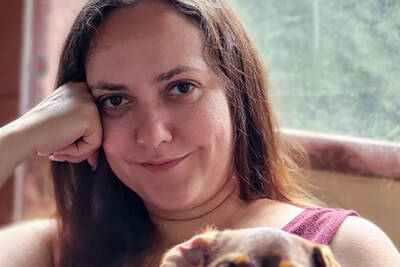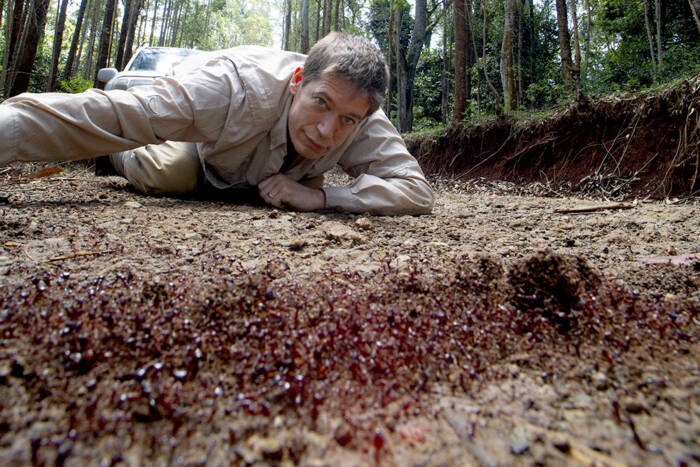New neuroscience institute established at Rockefeller with funding from the Kavli Foundation
by Eva Kiesler, Managing Editor
Earlier this month, a group of Rockefeller representatives travelled to Washington, D.C, to take part in an announcement of the university’s newly established Kavli Neural Systems Institute (Kavli NSI). Funded by a $20 million endowment supported equally by The Kavli Foundation and Rockefeller, the institute is part of a network of seven Kavli Institutes carrying out fundamental research in neuroscience, and a broader network of 20 Kavli Institutes dedicated to astrophysics, nanoscience, neuroscience, and theoretical physics. In addition to Rockefeller’s new neuroscience institute, two others—at Johns Hopkins University and at the University of California, San Francisco—were announced at the same event.

In her remarks at the Capitol Hill briefing, Cori Bargmann emphasized that progress in neuroscience will be catalyzed by collaborations with the physical sciences and mathematics.
“The brain is the most complex organ in our bodies, the seat of perception, memory, cognition, and the center of behavior and consciousness itself,” said Rockefeller president Marc Tessier-Lavigne when speaking on Capitol Hill during the bipartisan briefing about the neuroscience initiative—a day-long event attended by policymakers, leaders of federal research funding agencies, science advocates, and members of the press. “Understanding how [the brain] performs these remarkable functions is one of the greatest intellectual challenges and adventures of the 21st century, and goes to the heart of who we are.”
The briefing also included remarks by members of U.S. Congress Carolyn Maloney, Andy Harris and Barbara Mikulski; Thomas Kalil, Deputy Director for Technology and Innovation in the White House Office of Science and Technology Policy; National Science Foundation Director France Córdova; National Institute of Mental Health Director Thomas Insel; and other distinguished speakers.
The Kavli NSI at Rockefeller represents a portion of a $100 million commitment of new funds announced at the event to enable research aimed at deepening our understanding of the brain and brain-related disorders, such as traumatic brain injuries, Alzheimer’s disease, and Parkinson’s disease.
Strengthening neuroscience and collaboration at Rockefeller
The Kavli NSI aims to draw on Rockefeller’s culture of creativity and excellence to solve the most challenging problems in neuroscience—for instance by promoting interdisciplinary research and the development of new research technologies.
“Our approach to the study of neuroscience is driven by big questions,” Dr. Tessier-Lavigne said. “How are hard-wired neural circuits modulated by experience? How are complex behaviors controlled at the levels of individual circuit cells and molecules? How are damaged nerve cells repaired? How do neurodegenerative disorders destroy nerve cells?”
The convergence of neuroscience with other disciplines will accelerate in the coming decades. According to Cori Bargmann, Torsten N. Wiesel Professor and head of Rockefeller’s Lulu and Anthony Wang Laboratory of Neural Circuits and Behavior, the Kavli NSI will enable Rockefeller scientists to fast-track their collaborations with individuals outside of the life sciences. It will also provide much-needed seed funding that will allow our investigators to launch high-risk, high-reward research initiatives.
“We’re at a point in neuroscience where many of the technologies and conceptual frameworks we need to make discoveries are coming from the physical sciences and mathematics into biology,” Dr. Bargmann said during the bipartisan briefing. “Our ability to reach out to our colleagues in these other disciplines—in a place like Rockefeller, which has a strong tradition of collaboration—will be an enormous asset.”
Dr. Bargmann will serve as co-director of Kavli NSI together with Jeffrey M. Friedman, Marilyn M. Simpson Professor and head of the Laboratory of Molecular Genetics. Leslie B. Vosshall, Robin Chemers Neustein Professor and head of the Laboratory of Neurogenetics and Behavior, will be the institute’s associate director.
Read more about the Kavli-NSI on Newswire or watch a webcast of the Capitol Hill briefing on the Kavli Foundation’s website.


